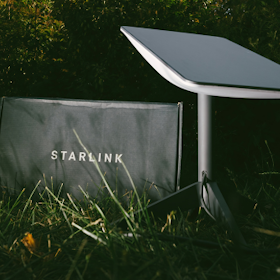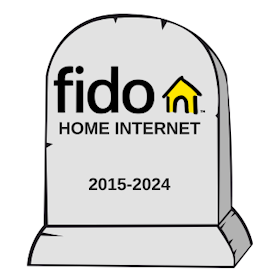
Whether you’re grinding the ladder in a MOBA, facing off with friends in sports titles, or aiming for the top of the Rocket League leaderboards, you’ll want a fast and reliable internet connection. Our top picks for the best internet for gaming in Canada include:
- Telus’ PureFibre Gigabit Internet plan for those in the western provinces.
- Videotron’s Internet Giga plan for those living in Quebec.
- Bell’s Gigabit Fibe 1.5 and Rogers’ Ignite Internet Gigabit for those living in the east.
The best gaming internet plan for you depends highly on your location, budget, and even which games you like to play—all of which dictate the amount of data and speeds you’ll want to aim for. Let’s look in more detail at our picks for the best internet for gaming in Canada.
Best Internet Plans for Gaming
Canadian ISPs can have differences in their offerings depending on your location, so remember to check your local internet offers whenever you’re considering switching ISPs.
This table compares our picks for the best internet for gaming by region with details for each plan below. Fantastic news for gamers: all of our selections offer unlimited usage—no need to worry about those gaming marathons using all of your data allowance with these broadband plans.
Best Internet Plans for Gaming in Canada
| Provider | Region | Plan | Downloads | Uploads | Connection | Price |
|---|---|---|---|---|---|---|

|
Western Canada | PureFibre Gigabit Internet | 1Gbps | 1Gbps | Fibre | $95/month |

|
Quebec | Internet Giga | 940Mbps | 50Mbps | Cable | $70/month |

|
Eastern Canada | Gigabit Fibe 1.5 | 1.5Gbps | 940Mbps | Fibre | $120/month |

|
Eastern Canada | Ignite Internet Gigabit 1.5 | 1.5Gbps | 30Mbps | Cable | $114.99/month |
Best Western Canada internet plans for gaming
Telus is an excellent option if you’re living in the western provinces. The Telus PureFibre Gigabit Internet plan includes higher upload speeds than what Shaw has to offer, making sure that gamers are getting their commands to the server faster, reducing the opportunity for lag and gaming frustrations. Download and upload speeds can reach a seriously impressive 1Gbps.Telus also ranks among the most consistent ISPs for gamers and has a variety of plans and bundles to choose from to fit your needs and your budget.
Best Quebec-exclusive internet plan for gaming
Videotron’s Helix internet plans all offer quite a bit of value for the general consumer, but they also have enough juice to perform well for online games—the Internet Giga plan, for example, offers speeds reaching 940Mbps download and 50Mbps upload. This Quebec-exclusive carrier’s broadband deals include a solid discount for the first two years of service, which helps to maximize the bang for your buck and you can also look into other services like mobile, TV, and home phone.
Best Eastern Canada internet plans for gaming
Bell and Rogers are the two largest ISPs for the eastern provinces, but Bell does have a bit of an advantage with their fibre technology. The Gigabit Fibe 1.5 plan is a crazy-fast option for gamers, and it’s one of the fastest plans in the entire country. With unlimited usage, download speeds capable of reaching 1.5Gbps, and upload speeds getting up to 940Mbps, your gaming needs are sure to be satisfied. Bell offers deals and offers across their internet, phone, and TV plans so you can find the perfect bundle for you.
Rogers’ Ignite plans push the capabilities of cable internet to their limits. I’ve seen great results with their gigabit internet speeds, particularly when using a wired connection. Online games like Call of Duty rarely had any hiccups on my gaming console with their Ignite Internet Gigabit 1.5 plan. All of my gaming adventures have run smoothly with 1.5Gbps downloads, 50Mbps uploads, and unlimited usage. Like Bell, Rogers offers internet, phone, and TV bundles. You can compare Bell and Rogers as ISPs with our guide before making your final call.
How to Choose the Best Internet for Gaming
A number of factors go into choosing the best Canadian internet plan for gaming. Everything from the types of games you play, to the amount of data, to whether you often live-stream your gaming escapades will inform which plan best meets your needs. We’ll cover some of the basics here so you’re able to find a plan that you can love.
Online gaming speeds
Your required download and upload speeds will vary from game to game as well as how many connected devices you have simultaneously. Most online games only require about 4Mbps download and 1Mbps upload to function, but your internet plan will require much more to sustain a pleasant gaming experience while also working well for your other needs. Speeds around 50Mbps download and 10Mbps upload are the recommended minimum for most homes.
Recommended speeds for online activities
| Online activity | Minimum download speed |
|---|---|
| Gaming | 6Mbps |
| Web browsing | 1Mbps |
| Video streaming (SD) | 2Mbps |
| Video streaming (HD) | 5Mbps |
| Video streaming (4K) | 25Mbps |
| Audio streaming | 500kbps |
| Live streaming on social | 6Mbps |
| Video calling | 6Mbps |
| Smart devices | 1Mbps |
You can use our internet speed test to check your current speeds and get a better idea of how much speed your household might need with our internet speed guide. Having more speed than the recommended minimum is almost always a good call. This gives you more available bandwidth for extra devices on your network, including when you have guests. Plus, if you’re using cable internet, you’re more likely to maintain your speeds during periods of high traffic.
What's making my internet slow?
If you notice that your games are running into lag issues, your latency (or ping rate) is one of the most likely issues. Latency is a measure of how long it takes for information to travel from your computer to a server, then back to your computer. You can think of it as the round-trip time for your information.
A ping rate below 20 milliseconds (ms) is considered exceptional, while a ping rate from 50-100ms is considered good to average. Any ping rate above 150ms is much higher than you’ll want.
Some games will also display your jitter, or your change in latency over time. The more consistent this is, the less packet loss you’ll experience, and the smoother your games will run. The most ideal conditions for gamers include having as little latency and jitter as possible.
You can improve your existing connection by using a Wi-Fi booster or by using a wired Ethernet connection. Most gaming consoles and gaming laptops will come with an Ethernet port while some Mac and Windows computers may need an adapter.
Internet connection types
The type of internet connection that you use can have a significant impact on your online gaming experience as well. There are four main types of internet services that are currently available in Canada, each with its own benefits and drawbacks. The four types are:
Fibre provides the fastest and most reliable connection of these four types, making it the best choice for gamers. While fibre is the best, it's also the most scarce because it's a new technology that's still having its infrastructure built. If fibre internet is not available in your area, cable is your next best bet. Proximity issues can impact DSL and satellite too much for them to be great choices for gamers.
Unlimited data for mobile gaming
With unlimited mobile data plans becoming more widely available, mobile gamers will be able to continue striving for greatness while on the move more than ever with both 4G LTE and 5G networks getting stronger. Our unlimited data streaming guide will walk you through everything you need to know to keep up with the competition.
Gaming Internet FAQs
What are the best gaming ISPs?
Our picks for the best internet for gaming include plans from Telus, Bell, Rogers, and Videotron. They don’t all offer fibre, but they provide some of the best gaming experiences in Canada.
How do I make my internet better for gaming?
You can significantly improve your internet for online gaming by using a wired connection (Ethernet), adding Wi-Fi boosters, and/or by getting a new modem or router that provides better performance.
More details on choosing the best internet for gaming are above.
What is considered fast internet for gaming?
Gigabit or faster internet speeds provide the best home internet experiences for gaming and more. Most games only require internet speeds of about 4Mbps download and 1Mbps upload, but you’ll want an internet package with much more to keep all of your different devices connected and running as smooth as possible.
What is latency?
Latency is the amount of time it takes for information to make a round-trip between your computer and a server. The lower your latency, the better. Latency is often referred to as your ping or ping rate.
Jitter is the change in your latency over time. Online games will run best when both your latency and jitter are low.
How do I get rid of lag?
Lag occurs when you have a lot of packet loss, where the information being sent to and from your computer and the server gets lost in transit. Latency and jitter are directly related, so you’ll want to minimize these. Using a combination of a more powerful wireless router, Wi-Fi boosters or an Ethernet connection can make your connection more stable and thus reduce lag. You could also need a broadband plan with more bandwidth and higher speeds.
Should I buy a gaming router?
A gaming router can be a good purchase to benefit your online experience, but it isn’t a necessity. You can more read about choosing the best internet for gaming above.
Do I need Wi-Fi 6 for gaming?
The short answer is no, but it’s nice if you can get it. Wi-Fi 6 provides higher theoretical speeds and better load management when multiple devices are connected to the same network. The higher theoretical speeds wouldn’t influence much, but if you’re living in a household with a bunch of devices constantly connected then looking into Wi-Fi 6 could be worth your time.
Related Articles
Find Better Internet and Phone Plans
Hundreds of internet plans unpacked. All the facts. No surprises.
Internet Providers by Provinces and Territories
- Internet in Alberta
- Internet in British Columbia
- Internet in Manitoba
- Internet in New Brunswick
- Internet in Newfoundland and Labrador
- Internet in Northwest Territories
- Internet in Nova Scotia
- Internet in Nunavut
- Internet in Ontario
- Internet in Prince Edward Island
- Internet in Quebec
- Internet in Saskatchewan
- Internet in Yukon Territory













































